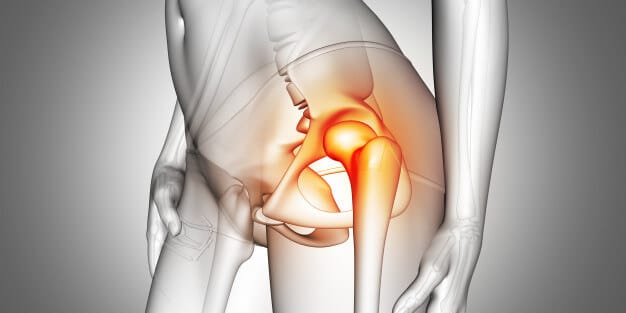Lumbar and hip pain: The importance of going to the traumatologist

Dealing with persistent low back and hip pain that radiates down the legs can significantly affect your daily life. These symptoms can be indicative of a variety of underlying problems, so it is essential to consult an orthopedic surgeon for an accurate diagnosis and effective treatment.
In this article, we will delve into the causes of low back and hip pain.
- Herniated disc:
Explanation: The discs located between the vertebrae act as shock absorbers. When one of these discs ruptures or bulges, it can press on the nerves, causing pain that can radiate to the hips and legs.
Example: imagine a jelly-filled doughnut with the jelly popping out: it’s similar to what happens when a disc herniates. - Sciatica:
Explanation: The sciatic nerve, which runs from the lower back to the back of each leg, can become irritated or compressed, causing pain, numbness or tingling along its path.
Example: think of the sciatic nerve as an electrical wire that carries electricity to the leg, and when there is a clog (compression), it does not discharge well, causing discomfort along the path. - Spinal Stenosis:
Explanation: This condition involves narrowing of the spinal canal, which puts pressure on the spinal cord and nerves, causing pain that often radiates down the legs.
Example: imagine a tunnel that narrows, squeezing the contents inside: that’s what happens with spinal stenosis. - Joint problems:
Explanation: conditions such as osteoarthritis or inflammatory arthritis can cause pain in the hip joint, which may radiate to the lower back or legs.
Example: Imagine two bones in a joint rubbing together, causing discomfort and pain.
- Accurate diagnosis:
An orthopedic surgeon is a specialist in musculoskeletal injuries and conditions. They have the expertise to perform thorough evaluations, order relevant diagnostic tests and determine the exact cause of your pain. - Personalized treatment plans:
Once the cause has been identified, an orthopedic surgeon can develop a personalized treatment plan that may include physical therapy, medications, injections or, in some cases, surgical intervention. - Prevention of further complications:
Timely intervention is crucial to prevent the progression of certain conditions. Ignoring persistent pain can lead to worsening symptoms and possible complications. - Comprehensive care:
Traumatologists often collaborate with a multidisciplinary team, including physical therapists, pain management specialists and surgeons, to provide comprehensive care that addresses all aspects of your ailment.
Do you need an appointment with a professional doctor? By clicking here you can contact me where you can study your case.
